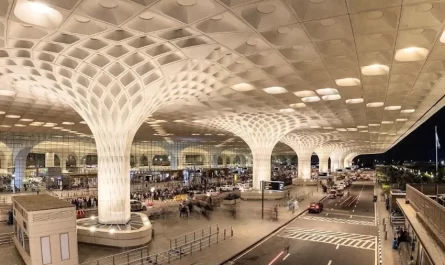Navigating the Nuances of Travel to India: Restrictions and Considerations
Travelers are welcome to visit India with the condition that they possess a valid passport, Overseas Citizen of India (OCI) card, or a recently acquired visa from the Consulate. It is imperative for the traveler to confirm the possession of a transit or visit visa for the specific country through which they plan to transit, if applicable.
Contents
India, a land of vibrant culture, captivating landscapes, and rich history, beckons travelers from across the globe. However, before embarking on your Indian adventure, it’s crucial to be aware of any potential restrictions or considerations that may affect your journey.
In a world shaped by global dynamics and evolving health scenarios, the prospect of international travel demands a keen understanding of existing restrictions and regulations. For those considering a journey to India, it’s crucial to stay informed about the current travel landscape.
India is a vast and diverse country, and travel restrictions may differ across states and union territories. Research the specific regulations in the regions you plan to visit to avoid any surprises during your journey.
Visa Requirements:
Obtaining a valid visa is essential for most foreign nationals entering India. Visa requirements vary depending on your nationality and purpose of travel. Tourist visas are typically valid for up to six months, while business visas can be extended for longer durations. Electronic visas (e-Visas) are available for citizens of many countries, offering a convenient online application process.
Ensure your visa is up to date and aligns with the purpose of your visit.
COVID-19 Regulations:
As of November 30, 2023, India no longer requires COVID-19 vaccination or testing certificates for incoming travelers. However, it’s advisable to stay updated on any potential changes in COVID-19 protocols.
Restricted Areas:
India is a vast and diverse country, and travel restrictions may differ across states and union territories. Research the specific regulations in the regions you plan to visit to avoid any surprises during your journey.
Certain areas in India are restricted or require special permits for foreigners to visit. These include parts of Jammu and Kashmir, some border areas, and some tribal areas. Check with the Ministry of External Affairs for the latest information on restricted areas.
(i) Whole of Arunachal Pradesh
(ii) Parts of Himachal Pradesh
(iii) Parts of Jammu & Kashmir
(iv) Whole of Manipur
(v) Whole of Mizoram
(vi) Whole of Nagaland
(vii) Parts of Rajasthan
(viii) Whole of Sikkim (partly in Protected Area and partly in Restricted Area)
(ix) Parts of Uttarakhand
Customs Restrictions:
India has strict customs regulations on the import of certain items, including firearms, narcotics, and counterfeit goods. Be sure to familiarize yourself with these restrictions to avoid any penalties.
General Safety Precautions:
Like any travel destination, India requires a degree of caution and vigilance. Exercise common sense, keep your valuables secure, and be aware of your surroundings.
Additional Considerations:
- Currency Exchange: India’s currency is the Indian rupee (INR). You can exchange foreign currency at banks, airports, and authorized currency exchange counters.
- Transportation: India offers a diverse range of transportation options, including railways, buses, taxis, and auto-rickshaws.
- Accommodation: India caters to a wide range of accommodation budgets, from budget hostels to luxurious hotels.
- Communication: India’s telecommunication network is well-developed. SIM cards are readily available, and Wi-Fi access is becoming increasingly common.
- Language: Hindi is the official language of India, but English is widely spoken in tourist areas.
India is a welcoming and captivating destination with a wealth of experiences to offer. By being aware of the potential restrictions and considerations, you can ensure a smooth and enjoyable journey through this incredible country.
Given the dynamic nature of the global situation, travel restrictions can change rapidly. Stay connected with official government sources, airlines, and relevant authorities for real-time updates on any modifications to travel protocols.
Embarking on a journey to India involves not just the excitement of exploration but also a responsible awareness of prevailing travel restrictions. By staying informed and adhering to the guidelines set forth by authorities, travelers can navigate these restrictions and enjoy a safe and enriching experience in the incredible and diverse landscapes of India. Remember, the key to successful travel lies in preparedness and adaptability, ensuring a seamless and enjoyable journey. Safe travels!
Aviation in India : HistoryIndia’s First Airport
India International Airports
How many airports are there in India?
Mumbai Airport Transfers (BOM) T1 to T2
Delhi Airport Transfers (DEL) T1 and T2
Bengaluru Airport T1 and T2 at (BLR)
Kerala Airports
Goa Airports
Gujarat Airports
Airport Codes of Lakshadweep Islands
New Indian Airports and terminals
Countries with the most airports in the world
Top Indian Airport Lounges Accessible with Credit Cards
As a tourist, should I rent a car in India?
How Early to Arrive at Indian Airports?
Direct Flights from Canada to India
Is there any restrictions to travel to India?
The Marvels of Mumbai Airport
India travel tips for first-time visitors
Green Airports
Duty Free Liquor: Bargain or Rip-off?




